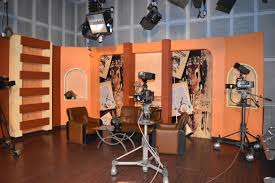
Faculties of Media
The College of Mass Communication is a distinguished college that combines theoretical and practical aspects, aiming to prepare media professionals capable of dealing with various modern media outlets and platforms. The subjects studied by students at the College of Mass Communication are diverse, covering journalism, radio and television, public relations and advertising, and digital media.
In this article, we review the most important subjects taught at the College of Mass Communication, focusing on the role of the Science Club Academy in simplifying and explaining complex concepts and supporting students with modern educational tools.
First: Basic Theoretical Subjects
Introduction to Media
This covers the definition of media, its history, functions, and various forms.
Concepts are simplified through illustrated explanations and interactive tests provided by the Science Club Academy.
Media Theories
This includes the study of theories such as the uses and gratifications theory and the media gatekeeper theory.
The Academy provides simplified reviews in the form of mind maps and videos that explain the theories in simple language.
Media Ethics
This focuses on the rules of media work, such as objectivity, integrity, and neutrality.
The Academy provides training in analyzing realistic media ethical situations to deepen understanding.
Second: Journalism Materials
Journalistic Editing
Learn the basics of writing news, reports, investigations, and articles.
The Science Club Academy offers ready-made templates and interactive editing models.
Journalistic Directing
Deals with page design and visual formatting of journalistic content.
The Academy provides digital tools that facilitate practical training in directing.
Electronic Journalism
Includes content production for digital platforms.
Academy lessons explain CMS tools and news website design in simplified ways.
Third: Radio and Television Materials
Radio and Television Program Production
Learn the basics of scriptwriting, preparation, presentation, and directing.
The Academy provides practical training using editing and audio recording software.
The Art of Public Speaking and Presentation
Includes correct pronunciation, body language, and persuasive skills.
The Academy offers audio and video training sessions to develop students' vocal skills.
Fourth: Public Relations and Advertising
Media Campaign Management
Learn how to plan successful media campaigns.
The Academy provides simulation models for designing and implementing campaigns in an interactive manner.
Advertising and Marketing
This includes creating advertisements, studying audiences, and designing promotional messages.
The Academy provides advertising design tools and training workshops on Google Ads and social media.
Fifth: Digital Media and Technological Transformation
Social Media
Studying the impact of digital platforms on traditional media.
The Science Club Academy offers professional courses in social media marketing.
Media Data Analysis
Learn Google Analytics tools and understand audience engagement.
The Academy provides simplified lessons on digital analytics tools and how to read them.
The Role of the Science Club Academy in Simplifying College of Media Courses
✅ Simple and Directed Explanation: The Academy adopts a visual, interactive approach to explaining theoretical and practical courses.
✅ Workshops and Practical Projects: Help build students' practical skills.
✅ Question Bank and Tests: To enable students to review material efficiently before exams.
✅ Supportive Courses: In design, video, writing, and public speaking, to support creative and media aspects.
The College of Media represents a multifaceted educational environment that combines creativity, analysis, technology, and language. With its diverse and multifaceted courses, the Science Club Academy serves as a supportive educational resource, simplifying information and enabling students to master the theoretical and practical skills required for the modern media job market.